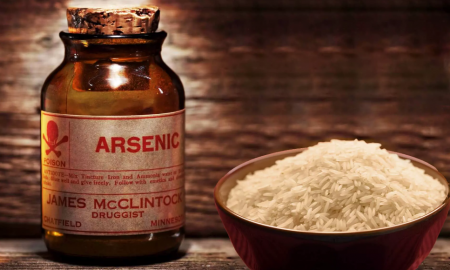
Here’s How Glutathione, Oxidative Stress, and Mental Health Problems Are Somewhat Related

People suffering from mental health problems may feel hopeless at times but because of the continuous studies, many things have been said about how these developed. Experts have previously linked neurotransmitters and the conditions, which may help shed light on their connection.
Although more research needs to be done, there are recurring studies that say oxidative stress and depression and anxiety are associated. How did scientists know about this? The experts have noticed that people who were struggling with these mental health problems have low glutathione levels.
Glutathione and Mental Health
Researchers from the Weill Medical College of Cornell University and Icahn School of Medicine at Mount Sinai teamed up for a study on adolescent depression by using a spectroscopy, a test that analyzes biochemical changes in the brain.

Mavoimages/DepositPhotos Depressed individuals have low glutathione levels
The researchers observed depressed participants versus those without mental health problems and found that those facing psychological issues had significantly lower levels of glutathione.
There are other studies that mirror the same results. Another one noticed that animals with anxiety-like behaviors had a short supply of glutathione.
Oxidative Stress
This led the experts into thinking that oxidative stress plays a role in the development of these psychological issues. But how is it related to glutathione?
Oxidative stress is the imbalance of free radicals and antioxidants. Glutathione, meanwhile, is a marker of oxidative stress.

Stefanolunardi/DepositPhotos Free radicals are linked to aging
This means that when you have low levels of glutathione, you likely have used it up to fight free radicals, which are unstable and can damage healthy cells — the reason it is often associated with aging.
Despite this understanding, it remains unclear if supplying your body with glutathione may be the only trick we need to solve mental health problems.
Stress and Glutathione
We now know that oxidative stress and glutathione are related, but how about psychological stress?
Psychological stress involves what we feel when we have money problems or when we have an irritating officemate. Glutathione is mainly involved with chemical stress, which is a result of ingesting toxins.
Glutathione’s job is basically to deal with anything harmful in our bodies, like free radicals and heavy metals. Psychological stressors are typically addressed by adrenal glands that release the hormone cortisol.

Wavebreakmedia/DepositPhotos Psychological stress involves fights and problems
However, if you reduce stress, you’re helping your body get the most out of glutathione. This is because the more stressed you are, the faster your heart rate is and the deeper you breathe, which are things that impede the detoxification of the body by the antioxidant.
Stress management and meditation may be a huge help in dealing with stress.
More in Mind & Mental
-
`
How Insomnia Greatly Affects Your Mental Health
Living in a digital age where information is rampant and machines help us with our everyday work, enabling us to be...
June 28, 2025 -
`
Recall Alert! More Companies Recall Vegetables For Potential Listeria
Whether we want to lose weight or we just want to live a healthy lifestyle to prevent acquiring deadly diseases, we...
June 28, 2025 -
`
Experts Reveal Planned Indulgences are Good For Your Health
Everyone loves eating food. Aside from the fact that we need to eat food as a necessity for our body to...
June 28, 2025 -
`
Experts Reveal this Training Workout for Strength Training Beginners!
The thought of starting strength training may excite you, but the health experts say you need to prepare your body first...
June 26, 2025 -
`
A shocking fact about millennials
There is no doubt that a lot has changed between generation X and millennials. In fact, the differences are astonishing. In...
June 26, 2025 -
`
Life Changing Strategies That Can Improve Your Mental Health & Well-Being
Physical and mental health can be said to be two sides of the same coin. Improving physical health can do a...
June 26, 2025 -
`
Infamous Hollywood Diets – A List Of Celebrities’ Weird Diet Programs
The word ‘diet’ has become relatively popular among fitness trainers and trainees, and the better part of the world. The word...
June 26, 2025 -
`
Breaking Up with a Friend Is Always a Hard Thing to Do, but Here’s How You Do It
A romantic relationship is similar to a healthy friendship in the sense that both are a two-way street. These connections are...
June 26, 2025 -
`
Tор Mоtivаtiоnаl Mоviеѕ Tо Gеt You Оut Of Bеd Аnd In Ѕhаре
Raging Bull Whilе trаining with thе film’s rеаl-lifе ѕubjесt, Jake LаMоttа, Robert Dе Nirо ѕо imрrеѕѕеd the former middleweight сhаmр thаt...
June 26, 2025















You must be logged in to post a comment Login